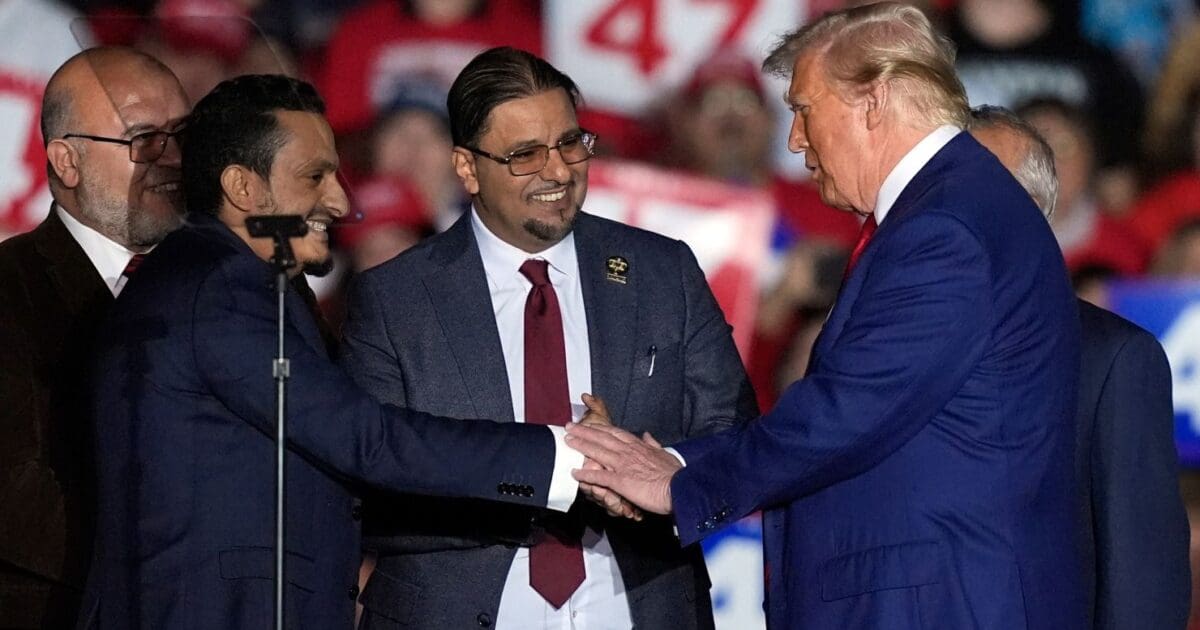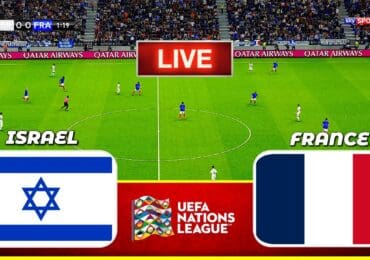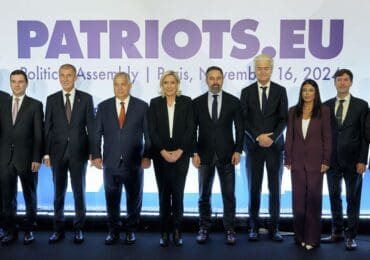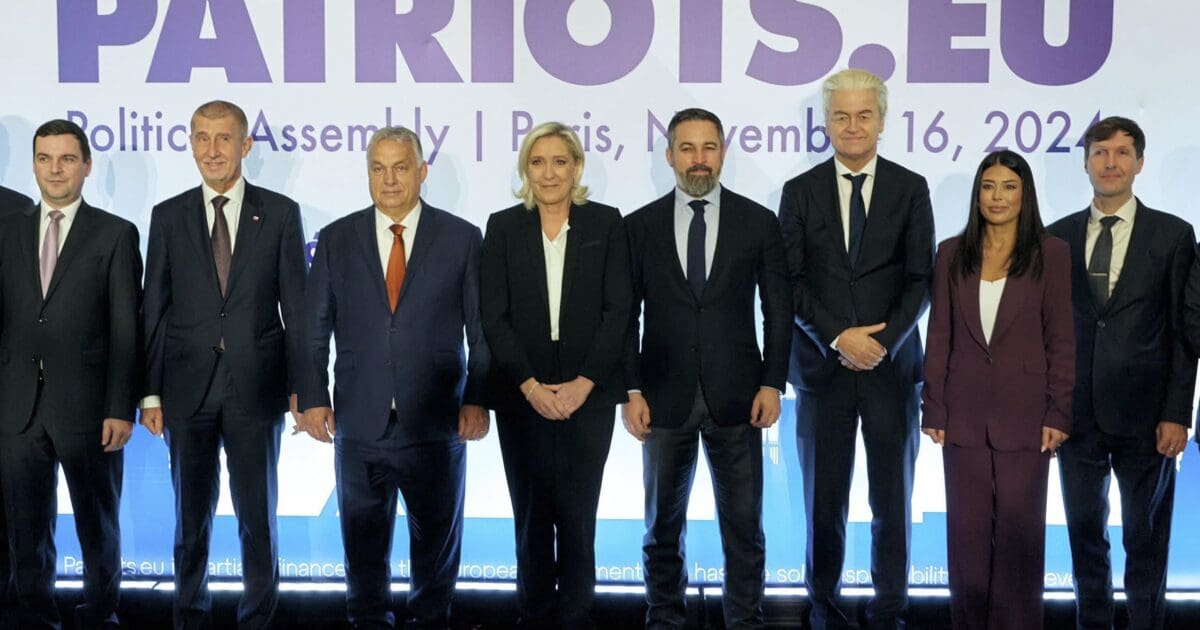A surprising endorsement from Michigan’s Muslim community for Donald Trump may seem, at first glance, like a sign of unity. The spokesperson, Imam Belal Alzuhairi, rally remarks, which stressed peace, family values, and strong borders, might suggest that Muslim values align closely with American ideals. But can we take this endorsement at face value?
Here is an excerpt from his speech:
“Michiganders, as the President said, we just had a positive meeting with President Trump. We, as Muslims, stand with President Trump because he promises peace, not war. We support Donald Trump because he vowed to end conflict in the Middle East and Ukraine, focusing on a world free from bloodshed. I believe God saved his life for a purpose: to save others.”
“We support Trump for his commitment to family values and child welfare, particularly in education. We stand with him for a strong, secure border, allowing those who wish to enter the U.S. to do so legally. We believe he will serve all Americans, embracing every race, color, and religion.”
“Our goal is PEACE and JUSTICE for all, to make America great again. Lastly, I have two predictions: the Detroit Lions will win the Super Bowl, and Donald Trump will be our next president. God bless you all and America.”
A deeper look at Islamic concepts of “peace” and “justice” within the Quran and Islamic tradition reveals significant discrepancies that may be deliberately downplayed to appeal to American audiences. Americans should question whether the words used are, in fact, intended to convey a very different message to those familiar with Islamic doctrine.
In both Islamic and leftist discourse, “initiate language” is often used, where words mean one thing to the general public but hold a different, nuanced meaning to those within the community. Much like certain terms in leftist ideology are framed positively but carry deeper implications, Islam has a history of using words such as “peace” and “justice” to signify concepts that may diverge from Western values of pluralism and democratic freedom. For example, in leftist ideology, terms like “gender-affirming care” are used to promote what appears to be a positive value but often carry underlying meanings, such as advocating for medical interventions. Similarly, terms like “multiculturalism” may sound inclusive but can also imply a dilution or even replacement of traditional Western values.
Do “Peace” and “Justice” Mean What They Seem?
In the West, peace is generally understood as mutual tolerance and freedom from conflict, while justice is seen as fairness and equality under the law. In Islam, however, the concept of “peace” often implies something quite different: the “Peace of Islam” is achieved only when Islamic law (Sharia) is globally dominant. “Justice” in Islamic terms also equates to the implementation of Sharia, which governs everything from legal systems to personal behavior and social structures, often enforcing severe penalties on dissenters and unbelievers.
For example, Quran (2:208) says, “O You who believe! Enter absolutely into peace [Islam].” This verse is sometimes interpreted by apologists as a call to peace. However, the original Arabic uses the word “Islam” directly, not the term for “peace,” which is salaam. This means the verse is actually urging Muslims to embrace Islam fully, and it becomes clearer in context that this “peace” is not about peaceful coexistence but submission to Islamic rule. Similarly, Quran (9:29) explicitly states that Muslims should “fight those who do not believe” until they submit to Islamic law, calling for non-Muslims to be subjugated rather than treated as equals.
The phrase, “We are with President Trump to make America great again through peace and justice for all,” is especially worth examining, as the term “peace” within Islamic doctrine often differs greatly from Western interpretations. Sayyid Qutb, a prominent jihadi thinker and main inspiration to the Muslim Brotherhood and al Qaeda, wrote in his book Milestones that “peace” in Islam is only achieved when Islam has conquered and eradicated all other religions, creating a global Islamic order. Qutb argues that Islam is the “religion of peace” because once Islam reigns supreme and the world is united under Sharia law, only then will true peace exist. This concept, commonly referred to as the “Peace of Islam,” is a far cry from the Western understanding of peace as mutual tolerance and coexistence. In this framework, peace is synonymous with total submission to Islamic governance.
Historically, the use of terms like “freedom” and “justice” in Islamic political movements, such as the Freedom and Justice Party established by the Muslim Brotherhood in Egypt, has illustrated how these words can signify the freedom to implement Sharia law rather than promoting democratic ideals. The Brotherhood’s doctrine embraces “freedom” as a right to enforce Islamic governance, with “justice” being synonymous with the dominance of Islamic law. In practice, this led to significant societal changes in Egypt, including restrictions on religious minorities and repressive policies until the party was overthrown.
Moreover, “freedom” in this context explicitly means the freedom to enforce Sharia law, a system fundamentally at odds with American values of liberty and individual rights. The Muslim Brotherhood’s doctrines make it clear that such endorsements are not mere expressions of support but calculated moves to establish Islamic influence within non-Islamic societies, often through gradual infiltration of political and social systems. In Michigan, where the Muslim population is steadily growing, this endorsement must be scrutinized as a possible stepping stone toward implementing Islamic principles over American democratic ideals, potentially paving the way for ideological expansion rather than integration.
These verses showcase a critical point: the Islamic concept of peace is often predicated on total submission to Islam rather than pluralistic harmony.
Abrogation and Evolving Messages of “Tolerance”
The doctrine of naskh (abrogation) is central in Islamic jurisprudence, where earlier “peaceful” verses are replaced by later ones that often have a more aggressive tone toward non-Muslims. A prime example is Quran (2:62), which speaks favorably of Jews and Christians, suggesting that they are protected under Islamic rule. However, this verse was later “abrogated” by verses like Quran (3:85): “Whoever seeks a religion other than Islam, it will never be accepted of him, and in the Hereafter he will be one of the losers.” This verse, along with others, makes it clear that other religions are not equal to Islam, and acceptance of Islam is the only path to salvation.
Abrogation complicates any interpretation of Islam as a faith of tolerance. What may have seemed tolerant at one stage—when Muhammad had fewer followers and needed strategic alliances—was superseded by more restrictive commands once Islam gained power. This shift is not incidental but an intentional part of Islamic doctrine that can help to gain influence subtly before implementing stricter rules once a strong foothold is achieved. In a Western context, endorsing “peace” could mean using this strategy to build influence, knowing that once authority is gained, the “rules” may change.
The Influence of Taqqiya: Concealing Beliefs for Strategic Gain
Another concept relevant here is taqiyya, a doctrine that allows Muslims to disguise their beliefs or intentions if necessary to protect or advance Islam. This concept allows adherents to present a “soft” version of Islamic beliefs to non-Muslims to avoid opposition or to gain support. In political settings, taqiyya could mean aligning with or endorsing a non-Muslim leader like Trump to promote an agenda that, while appearing benign, actually paves the way for further religious influence in American institutions and policies.
This tactic is not new. History is full of examples where religious and political groups use strategic alliances and language to build influence without revealing their ultimate intentions. For example, the Muslim Brotherhood’s “Freedom and Justice Party” in Egypt promoted ideals that appealed to Western democratic values. Yet once in power, it became clear that “freedom” meant the freedom to impose Sharia, and “justice” referred specifically to the enforcement of Islamic law.
Analyzing Specific Quranic Verses on Tolerance and Non-Muslim Relations
Several Quranic verses often cited by apologists as “peaceful” are rarely shown in full context, revealing their true intent.
- Quran (5:32) is commonly quoted for stating, “if anyone killed a person, it would be as if he killed all mankind.” But the full verse specifies that this principle applies only to “the Children of Israel” (Jews) and is followed by a call to punish non-believers severely. Contextually, this verse does not apply universally; rather, it illustrates that non-Muslims who do not submit are considered enemies.
- Quran (60:8), which says, “Allah does not forbid you to deal justly with those who fought not against you,” might seem like a call for universal tolerance. However, this verse is actually limited to specific historical alliances and does not endorse permanent equality with non-Muslims. Furthermore, Quran (60:1) warns Muslims against taking friends from those who do not believe in Islam, illustrating the Quran’s broader stance on segregation rather than integration with non-believers.
- Quran (9:5), known as the “Verse of the Sword,” commands Muslims to “kill the polytheists wherever you find them.” This verse is often cited as evidence of the aggressive stance Islam can take toward non-believers, mandating violence against those who refuse to accept Islamic rule.
The Practical Implications for America
In light of these Islamic religious texts, Michigan’s endorsement of Trump might be less about shared values and more about building influence through strategic alliances. With a growing Muslim demographic in Michigan, this endorsement could be an effort to secure political favor and pave the way for policies that support an Islamic worldview. Given the doctrine of taqiyya, it’s plausible that this endorsement is simply a means to an end—a calculated alliance aimed at gaining trust within the political system before pushing for values that align more closely with Islamic doctrine than with American democratic ideals.
Conclusion: Americans Should Question and Scrutinize Carefully
While this endorsement may seem like a positive gesture, Americans must recognize that words like “peace” and “justice” are not as straightforward as they seem. Throughout history, Islam’s relationship with non-Muslim communities has been fraught with tension, and concepts of peace and tolerance often come with conditions. When Michigan Muslims say they stand with Trump for “peace” and “justice,” it is essential to ask, Whose peace? Whose justice? These terms mean something very different in an Islamic context than what Americans assume.
In a time where alliances and endorsements are not always what they seem, it is critical to look beyond surface language and understand the deeper meanings and intentions behind such statements. Without this scrutiny, Americans risk supporting an agenda that may ultimately undermine the values of freedom, pluralism, and democracy that define the nation.














“AN HONOR, THANK YOU!”
WTF TRUMP!?
TRUMP, ARE YOU SO FUCKING STUPID?
OUT WITH ALL MUSLIMSHITS FROM EU, UK & USA!
HOW CAN TRUMP BE SO UNBELIEVABLE STUPID?
Stupid? You don’t become a billionaire by being stupid. Wise yes. I would have taken the endorsement. Keep your enemies close. Very close.
It is easy to become a millionaire when Fred daddy made the first millions, you stupid!
Guys, the Muslims aren’t going to vote for a woman. That’s it. Take their vote and move on. Islam is not compatible with Western values of liberty and free speech, but they can’t align themselves with the gender bending, feminist left, either. Don’t get all bent out of shape about their endorsement. Take the vote and call it a win. Just don’t get into bed with them.
Bacon on the skillet right now. The solution to this particular invading force; Cook more bacon, routinely. Inside, outside, on your bbq, get the smells going. Put it in everything. Make sure your restaurants adjust their menus. They’re so steeped in propaganda and zealotry, they honestly believe they will not go to heaven if they accidentally eat pork. So they make a point of staying far far away and segregated from persons and communities which keep this meat as an integral part of their regular diet. As far as the language break down, that’s important but for the most part unnecessary. In Islamic culture, it is not just tolerable, but a duty to lie to the infadels in preparation for installing sharia law. Their entire culture is akin to a manifest destiny for the entire world. That’s not the America we want to live in.
Very well written and timely article. Amy points out the pitfalls of blindly accepting some things the Muslim say without taking into consideration concepts like the Verse of Abrogation and taqiyya that allows Muslims to lie in the pursuit of their goals. People would do well to remember the video of Muslims in Dearborn, Michigan chanting “Death to Israel!” and “Death to America!” The good news is the Islamic fundamentalists are no longer hiding their true goals. The bad news is, too many people still believe the “Islam is a religion of peace” “highjacked by a few extremists” that was plainly stated after 9/11 by then-president Bush and then-PM Blair. I don’t know if Blair knew better but Bush certainly did-by failing the tell the American people the truth-that Islam was at war with US and the West, he did major damage to understanding our enemy.
THE BUSH CABAL PLANNED THE 9/11 CONTROLLED DEMOLITION!
WHY ARE THOSE CRIMINALS STILL WALKING FREE?
You can remove your lips off our AMERICA FIRST candidate’s anal sphincter anytime.